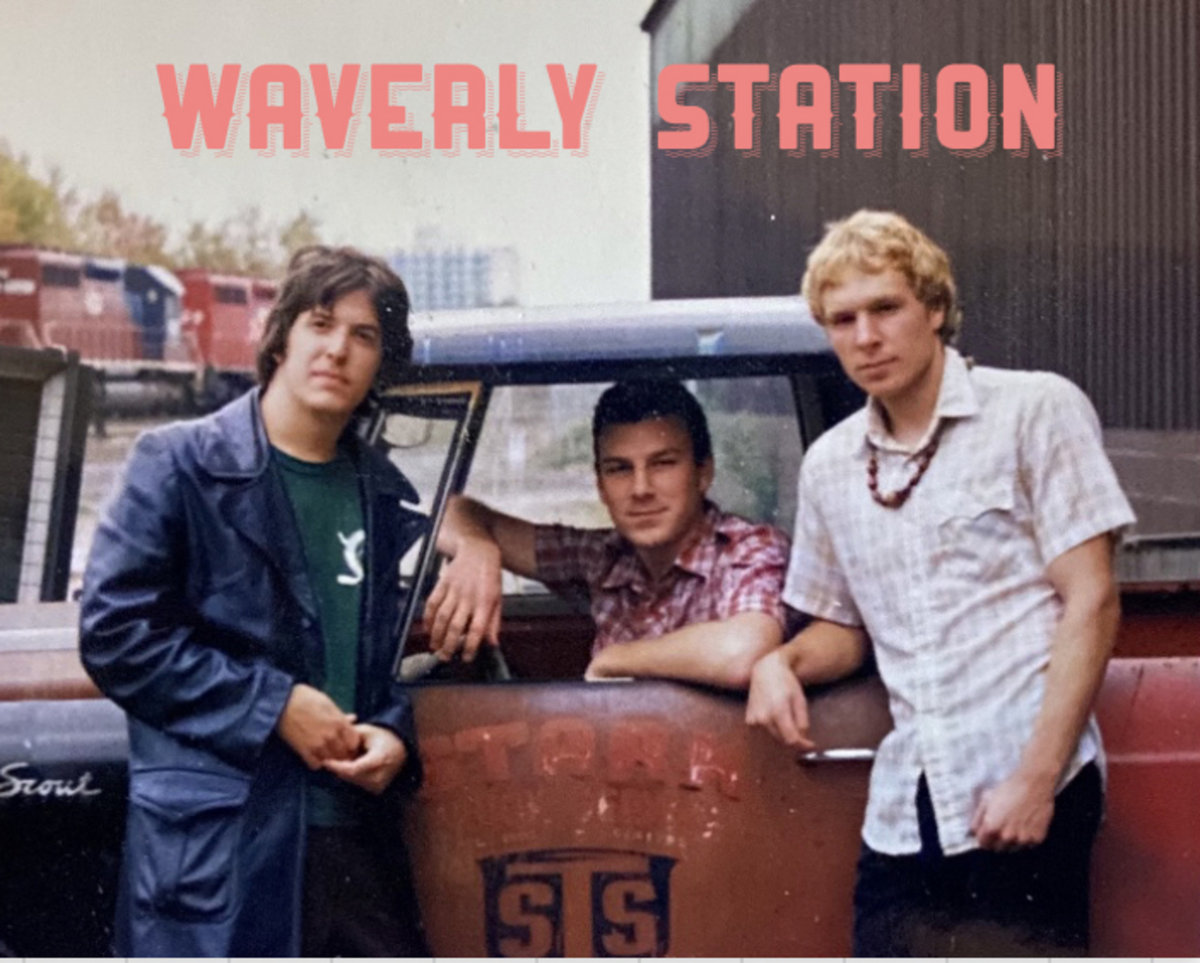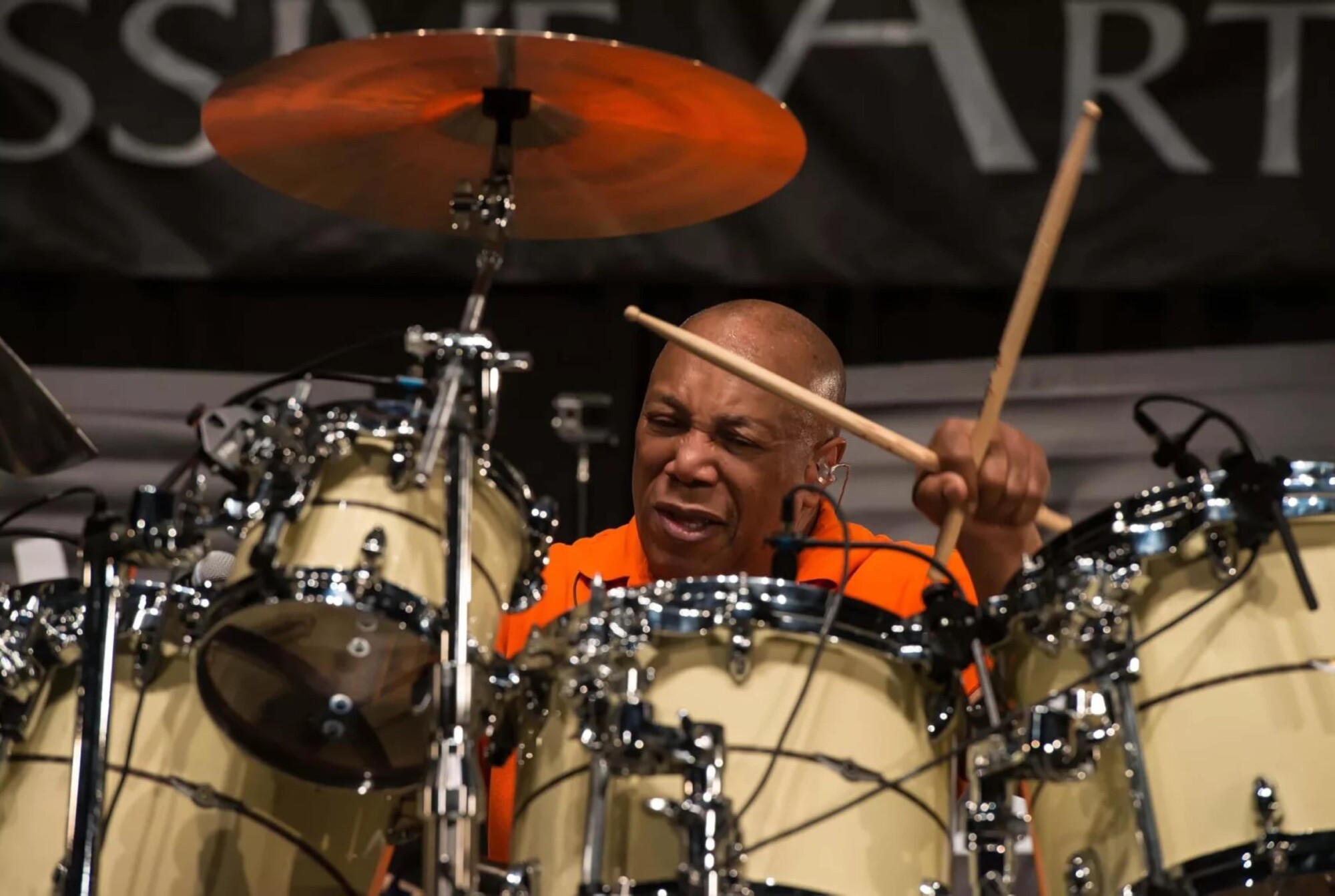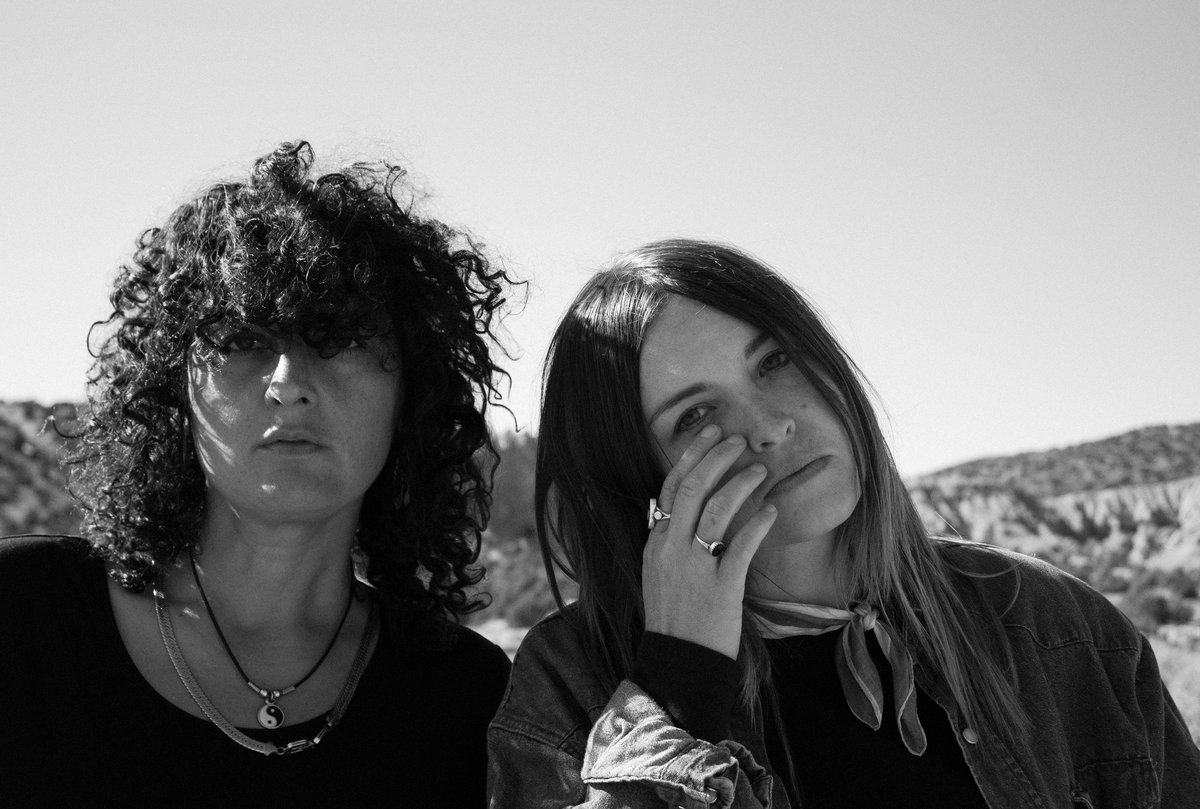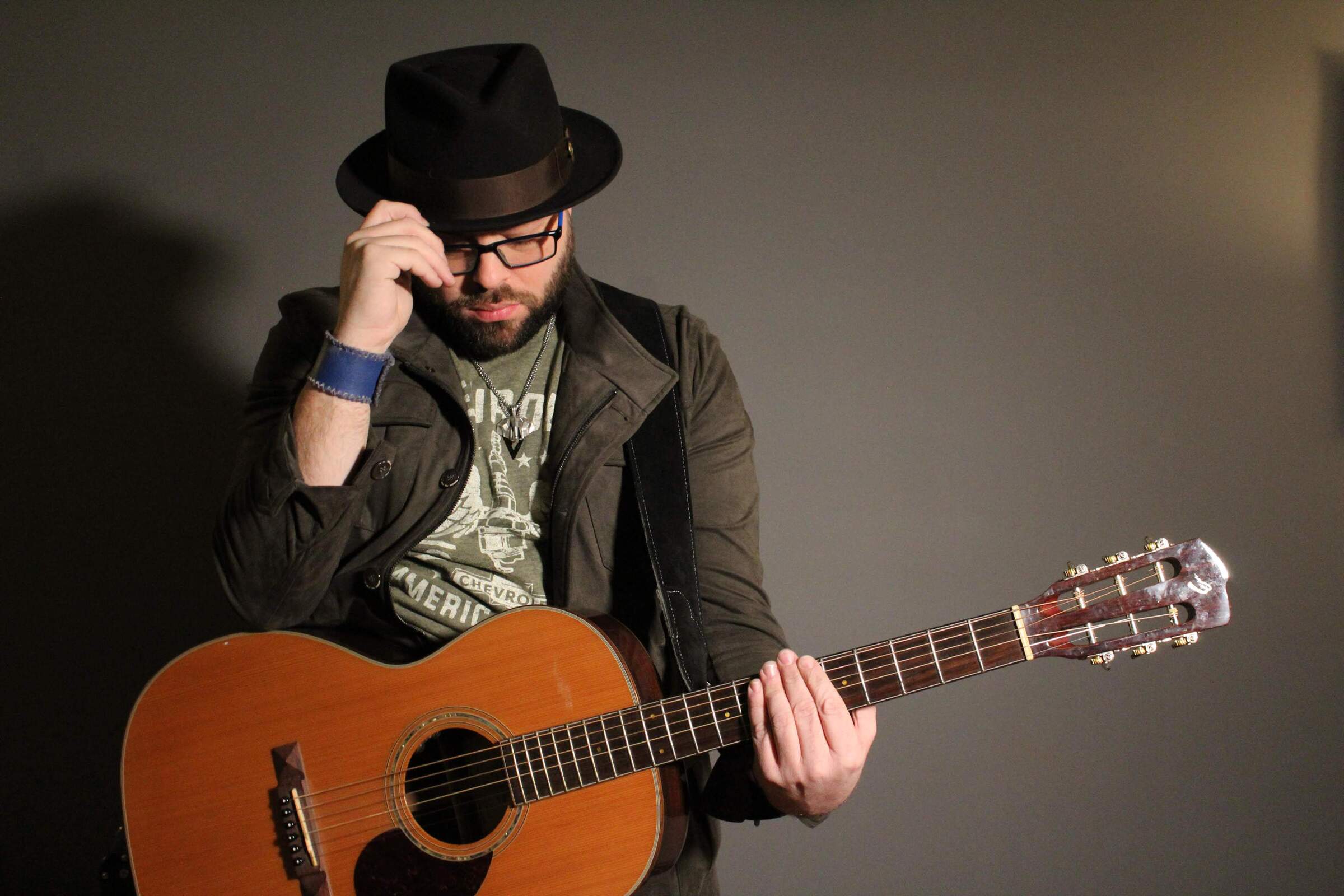Waverly Station Unearths ‘Cec Papa’s Treasure Chest’ | A Buried Indie Treasure
Waverly Station was never gunning for the mainstream. Coming up in London, Ontario’s late-’90s indie scene, they were the kind of band you heard about from a friend, caught at a sweaty club show, and left wondering why they weren’t huge.
Ryne D. Trevlon, David McCrank, and Ryan Lafleche cranked out lo-fi, psychedelic blues with echoes of early Pink Floyd, The Who, and the scrappy indie spirit of R.E.M. They played wherever would have them—Call The Office, The El Mocambo—fueling sets with energy and a “let’s just go for it” attitude.
‘Cec Papa’s Treasure Chest’ digs up their long-lost recordings, capturing that off-the-cuff magic of a band doing it purely for the love of it. No big label, no social media hype—just word-of-mouth, grainy posters on telephone poles, and the kind of music that sticks with you. It’s a time capsule from a scene that thrived on DIY, and a reminder that some of the best bands never needed the spotlight to shine.
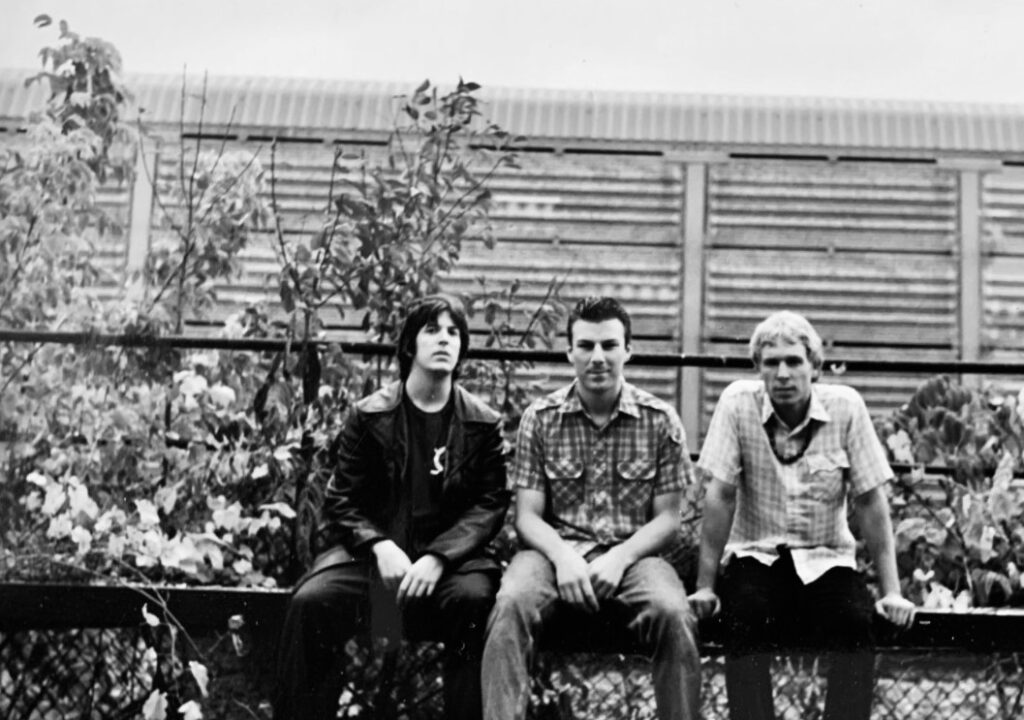
“We wrote original songs, and our sound was akin to Pink Floyd with a dose of the blues.”
Growing up in Kirkland Lake and then moving to London, Ontario, how did those environments shape your early musical tastes?
Kirkland Lake was ripe with music and musicians. We were fortunate to be influenced early on by many great musicians from Kirkland Lake. For the size of the town, there were a lot of bands, especially in high school during the heyday of grunge and the introduction of Nirvana. Playing in a band was a way to pass the time. Trevlon was in Mellow Odyssey, and Ryan and David were in Rush The Growler. Each band started writing original songs and playing them live at our high school and in competitions across Northern Ontario and Quebec. They were very well received, and that was inspirational to keep writing, keep being creative on our instruments, and expand beyond what we knew and what our environment provided.
Moving to London, Ontario, was eye-opening for us. London was rich with musical culture, and the indie lo-fi scene was thriving and exciting. Everybody either wanted to be in a band or knew someone in a band. And each band influenced the other. It was like a family supporting each other, holding each other up, and getting the sound out. London, for us, really expanded our musical horizons and inspired us to be creative and innovative both as a band and individually.
Can you recall a specific moment or memory from your childhood when you first felt the pull of music, and how did that spark evolve over time?
Ryne: My grandparents, Cec and Linda, dancing to Engelbert Humperdinck. It opened my eyes to the power of music.
Ryan: My dad was a bass player. I still have his bass today—a ‘68 Fender Precision. I remember always sitting on the couch playing around with it. I remember how neat it was to be able to make music come out of a speaker.
David: My mother playing Debussy late at night as I slept. Watching Jack Siemon play the drums at the Kirkland Lake Carnival.
Before forming Waverly Station, did any of you experiment with other bands or musical projects? If so, what recordings or memories from those days still influence you?
Prior to this, each of us played in some capacity in high school bands, and we were all familiar with each other. We all continued to play up until the move to London. Ryne was in Mellow Odyssey, and Ryan and Dave were in Rush The Growler. I think we all recorded with the great Bob May at Kirkland Sound, which inspired us all to engage in recording and writing.
How did the serendipitous meeting of three Kirkland Lakers in London lead to the birth of Waverly Station? What was that initial chemistry like?
All three of us were in school in London, Ontario, and we quickly formed a band. We were a quartet known as Saudade at first, and we began to take shape, playing gigs at the Whippet Lounge and the Richmond Tavern. We immediately had chemistry, as we were all familiar with each other musically and personally. We recorded an EP and released it on cassette. We wrote original songs, and our sound was akin to Pink Floyd with a dose of the blues.
We then morphed into The Strangells, which added another guitarist, and we primarily played cover songs. We played around London and Northern Ontario, playing bars and such. We also did a fair amount of busking, which was fun. The Strangells disbanded, and we scaled down to a trio, focusing on original songs. Waverly Station was born. The trio fit us perfectly. It felt freeing—boundless to explore our musicianship—and the chemistry was instant.
The trio freed us up to improvise live and incorporate those improvisations into the finished songs. If anything, our sound became bigger and more fluid. We never tried to fit in with a particular sound or genre; we just did what we wanted, what came naturally to us sonically. We refined our sound during our live shows, feeding off the energy our crowds provided and improvising while staying on track with the song. Ryne was heavily influenced by Syd Barrett, early Floyd, and Engelbert Humperdinck, and his writing reflected that. The songs just seemed to pour out of him. Being in a trio really opened his mind to write prolific, unfettered, intricate songs.
In the early days of your band, you played at intimate and iconic venues like Call The Office, The Embassy, and The El Mocambo. How did these unique spaces impact your performances and overall sound?
These venues invoke such nostalgia in us. The creaking wood floors, the smell of wet beer intertwined with the cedar planks beneath our hardwired amps and drums, the rich scent of cigarette smoke lingering, hovering above us, almost dancing to the music that rattled these wood floors. The smell of electricity just permeated the air. And the crowds, equally electric, feeding off of us and us feeding off of them—together, we were like charmed allies in music.
Every venue had this vibe: lo-fi, dirty, smoky, sweaty, woody, electric. We tapped into that and held on until our last note. These venues, along with us and their patrons, created a harmonious partnership that is evident in our record and our overall sound at the time.
What kind of atmosphere did these small, quirky clubs create for you, and do you have any standout gig stories that capture that lo-fi, indie spirit?
Whether we were playing the stage or part of the crowd, it was always an intimate, exceptional musical experience at these venues. We fed off each other, and this shared energy created a vibe, a harmonious partnership. Standouts always involved playing with or watching Square Root of Margaret from Chatham, Ontario. Tony Lima from Call The Office—we owe him a great deal of gratitude as he booked us plenty of times and got us a gig at the El Mocambo on his word alone, as we had no demo.
I think what captures this indie spirit the most is the groundwork we had to do. From networking to putting up posters, we did everything on our own—without any management, without any Internet, just computers and printouts, and some old-fashioned hand-drawn posters plastered on hydro poles across London. And word of mouth, especially as we networked with other bands. We supported each other, shared fans, and often played together. When we saw our name on the marquee at Call The Office, it felt like we had “made it,” so to speak. We will never forget it.
We did play live to air on Western University’s radio station, which was a unique experience. I wish we could get ahold of those tapes—that’s about as indie as you can get.
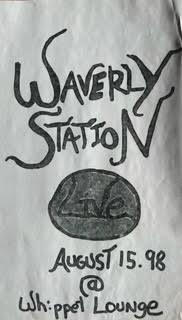
Your recordings at Ecclectric Studio were captured ‘off the floor’—can you dive into that process and share how it contributed to the authenticity of your music?
Recording off the floor worked for us because we played so well together live. It’s what we did every weekend, so it felt natural. Our chemistry and vibe are felt through the recordings, and the process was very familiar because the studio was basically Ryan’s house out in the woods. We all had recording experience—Ryne at Trebas, David at Fanshawe, and Ryan’s mad genius electronic skills—all of which played into recording the album. We did it all: engineering, producing, and playing on the record.
With the recent vinyl release of these recordings, what emotions and memories are you hoping to evoke in listeners who experience that tactile, nostalgic medium?
We hope people resonate with the recordings as a creative entity and that it inspires others to be true to their art and creativity. We really like the idea of the album title ‘Cec Papa’s Treasure Chest.’ It truly represents what each of us brought to the table in terms of musicianship, creativity, and art. We each delved into our treasure chest of creativity, and it melded into what you hear on the record.
Beyond your music, what other passions have occupied your lives?
Ryan: Handtool woodworking, pretending to play acoustic guitar.
Ryne: My passion right now is Legacy Of Lovers, the official brand and EP ‘Calm Cool Connections.’ Live simply, connect deeply, move with confidence. What you bring to the world matters. Make it calm, make it cool, make it meaningful.
David: Education, support, and equality for exceptional people, family, health, and music.
Could you walk us through your creative process—from the initial spark of an idea to the moment you decided it was ready to be recorded, especially in such an unconventional setting?
It usually started with a riff… then a beat, then a bass line, and then a song. Lots of jamming—no real structure until we “got it.” Most songs were refined live. We actually wrote a great deal of material this way. Songs were born out of our live performances and rehearsals. It was such a unique experience being a part of that. We each just knew what the other was about to do, or which direction the song was going to take.
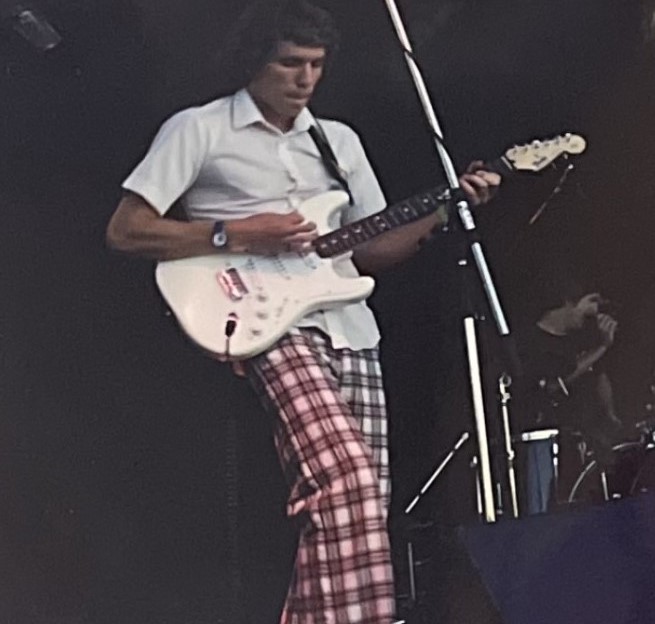
As you prepare to share this vinyl, what personal message or feeling do you hope resonates with everyone who listens?
Mostly, be true to your art as an artist. Create, motivate, and inspire yourself to be the best you can be individually, as an artist, in whatever capacity that art is for you. Let other artists and art inspire you, and engage with it with an open mind. We believe collectively that the music industry should be about the artists and their art, and that artists should be free to create this art, unfettered. We believe this to be a truly unique record in that it is just that: uninhibited, unrestrained, and truly original—our Treasure Chest. Open it up and see what’s inside!
Klemen Breznikar
Waverley Station Website / Bandcamp

